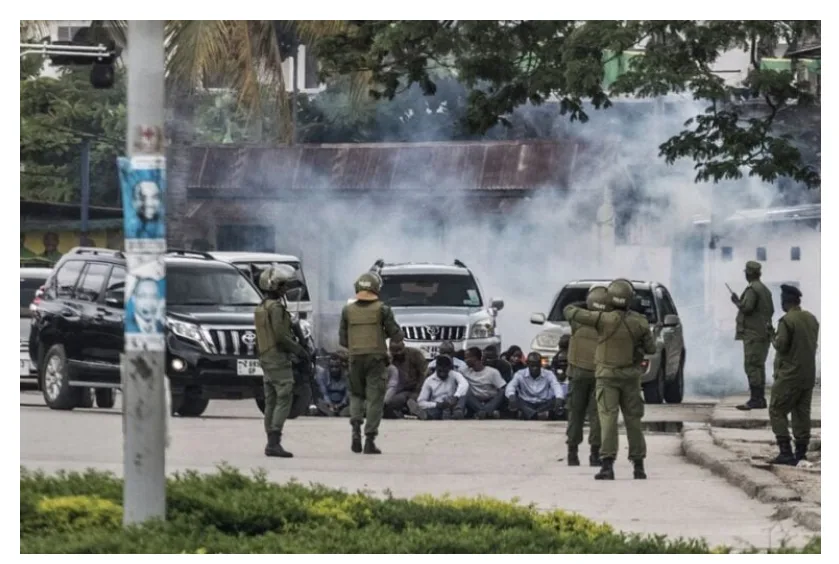Tanzania is facing mounting international concern as opposition figures allege that hundreds of citizens may have been killed during violent unrest that erupted around Wednesday’s general election. The country has remained under a strict internet shutdown, making the true situation difficult to verify independently.
The opposition party Chadema has accused security forces of carrying out a deadly crackdown on protesters in major cities including Dar es Salaam and Mwanza. Its spokesperson, John Kitoka, claimed that more than 350 people had been killed in Dar es Salaam alone, with over 200 in Mwanza, warning that the nationwide toll could be as high as 700. He also suggested that more killings may have occurred during curfew hours when public visibility is severely restricted.
These allegations contradict the official position of the government and security services. Tanzania’s Foreign Minister Mahmoud Thabit Kombo insisted that authorities had not used “excessive force,” adding that the government currently had no confirmed figures on fatalities.
Independent sources paint a mixed picture. A security insider and a diplomat in Dar es Salaam reportedly told AFP that the death toll might indeed be in the hundreds. Meanwhile, the United Nations has cited “credible reports” of at least 10 deaths, and Amnesty International has referenced information indicating over 100 casualties. Local hospitals and medical workers have declined to comment publicly, citing concerns for their safety.
The unrest followed an election in which President Samia Suluhu Hassan and the ruling CCM party were declared victorious. Critics argue that the process favored the incumbent after several key opposition leaders were jailed, prevented from running, or subjected to treason charges ahead of the poll.
As crowds took to the streets in anger, police responded with force and the government imposed curfews and a nationwide communications blackout. Videos and eyewitness accounts remain scarce due to the media restrictions, leaving many unanswered questions about the scale of the crisis.
In Zanzibar, where local polls were also held, the ACT-Wazalendo opposition party rejected the announced results, alleging widespread irregularities including voter fraud and ballot stuffing. Supporters expressed fear of speaking openly about the situation, citing a history of contested elections and intimidation.
President Hassan has not yet publicly addressed the growing accusations or the reported loss of life. Senior military officials have instead described protesters as “criminals,” urging the public to remain indoors.
Political analysts say the current turmoil reflects long-standing tensions within Tanzania’s power structure, particularly since Hassan took office in 2021 after the death of former president John Magufuli. Her attempts to solidify control — including pressure on opposition figures and restrictions on dissent — have created strong resistance.
Human rights organizations have condemned what they describe as a “climate of fear” in the lead-up to the election, pointing to alleged abductions of activists and suppression of political opposition.
With communications still restricted and international observers blocked from much of the country, calls are growing for independent investigations into both the election process and the reported violence.
For now, Tanzanians and the world await clarity — and accountability — in what activists fear could become one of the darkest political crises in the nation’s recent history.

